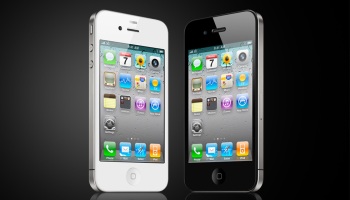T-Mobile’s iPhone 4 Price: Late And Lacklustre

The last UK operator has announced its “pre-order” iPhone 4 prices. There are no surprises (or phones yet) from T-Mobile.
T-Mobile, the last major UK carrier to announce Apple iPhone 4 prices, has not won much praise from observers.
Around two weeks after the iPhone 4 was launched, T-Mobile has published prices for the handset, and not entered a competition which so far sees 3 winning in terms of basic price. While Apple set a high price for the device, prices from O2, Vodafone and even Tesco did little to reduce it – with most operators expecting users to pay at least £60 per month if they want the phone “free” (ie without paying money up front).
No improvement over the others
 T-Mobile, likewise, will give a 16Gbyte handset away to a user prepared to give it £60 a month for two years. At the other end of the scale, on pay-as-you-go, the handset costs £499.
T-Mobile, likewise, will give a 16Gbyte handset away to a user prepared to give it £60 a month for two years. At the other end of the scale, on pay-as-you-go, the handset costs £499.
Within a few days, users reported signal problems with the iPhone 4, which Apple has admitted, and addressed in a public letter, have done little to quell demand for the phone. The so-called “iPhone Death Grip” happens when users hold the device in the left hand with their palm covering the lower left part of the stainless steel band that houses some of its antennas. They can either lose signal altogether, or experience a much weaker signal strength. The problem has been demonstrated in this YouTube video.
Despite this, two weeks after the launch, there are still queues outside O2 shops, as initial stock sold out and users hope for the restocking. Apple’s pre-order stock sold from its site very rapidly. Like other prividers, it seems that T-Mobile has little or no stock and is inviting customers to “pre-order” it, registering an interest for when it arrives.
The iPhone 4 is asmaller and thinner than earlier devices, aand allows more talk time. It has two cameras, to support video conferencing, and its iOS4 operating system – also available for the iPad and older iPhones – has abilities such as multitasking.
It has also been criticised for using an obscure micro-SIM standard which will make it hard for users to move devices between one provider and another.